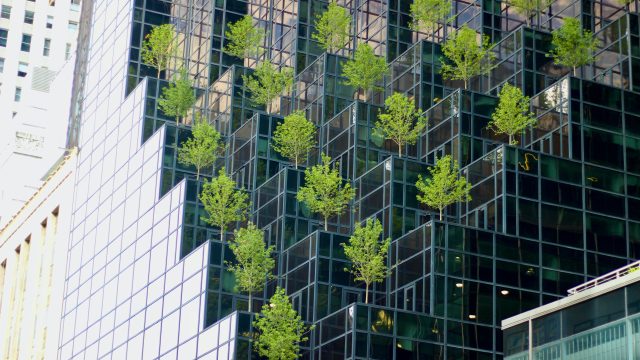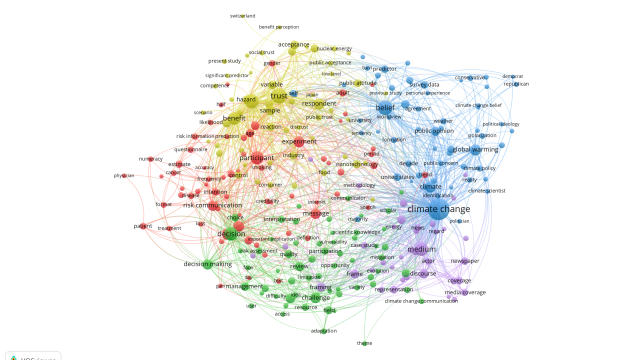The informal economy
Could the informal economy be the route to deliver the ideal of a Green Economy? Given its sheer size, its rapid growth potential and ability to provide livelihoods for the poor, we cannot ignore the informal sector. A green transition including low carbon growth, appropriate valuation of natural resources and social justice mechanisms must consider the role of the informal economy. If not, our efforts could miss the mark.
When strolling through the streets of any larger city in the developing world, the streets are buzzing with street vendors and service providers satisfying every need imaginable. In rural areas, informal players produce goods for their own consumption, small-scale enterprises and domestic companies or governments even subcontract informal agents at the local level.
The informal economy currently accounts for over half of global employment and as much as 90 per cent of employment in some of the poorer developing countries. The International Labour Organization (ILO) estimates that it employs 1.8bn people, as opposed to the 1.2bn in the formal sector. There is no single common definition of the informal economy but the broadest definition includes “any economic activity or source of income that is not subject to government regulation, taxation or observation” (Schneider 2002). Importantly, the informal economy incorporates both, legal and illegal activities.
Despite complications to measure the informal economy, one cannot ignore it as we attempt to provide solutions for greening our global economy. In a time when opportunities in the formal economy are dwindling, the informal sector will provide an even larger share of employment. Using the informal sector effectively can greatly accelerate the transition, as it touches on huge numbers of people and a vast amount of resources.
Managing natural resources
The environmental credentials in the informal economy are enormous. Some see a danger that resources might be utilized inappropriately as the informal sector by definition lacks controls, so resources could be exhausted prematurely. Yet, there is also a great opportunity within the informal economy to engage in proper management of resources – through opportunities that a formally regulated economy can’t capture. Informal actors are closely linked to their local communities, providing valuable networks for resource management, energy requirements and climate mitigation.
For instance, the collection of non-timber forest products such as honey, fruits, mushrooms, medicines in most developing countries is informally carried out by individuals or community groups. The products often end up in formal and informal retail outlets in these countries or in the developed world. The interface between the informal activities at the local level and the formal business operations is complex. To ensure sustainable collection of non-timber forest products collection, local actors must be able to link their benefits to the resource base in a way that enables them to harvest these products sustainably, such as avoiding the use of fire when hunting or collecting honey. The local players are also better placed to manage activities such as agricultural expansions into forest areas, frequency and timing of forest fires, all of which both degrade the resource base that underpins the enterprises and also contribute to greenhouse gas emissions.
The informal and the formal economy are part of a continuum with backward linkages involving the flow of raw materials, equipment, finance and consumer goods from formal to informal sector enterprises. There are also limited forward linkages, when large domestic companies or government agencies subcontract production to the informal sector or buy their goods directly. It is these links at the local level which will define if the green transition can be successful. Therefore, the potential of the informal economy comes to light when considering the alternative which would mean working solely with the formal sector while ignoring the informal sector.
Towards social justice
The informal sector provides employment opportunities and livelihoods impoverished improvements for the marginalised who are unable to enter the formal economy. Thus, if we want to make the green transition a just one, we need to think about the role of the informal sector. Actors that have commonly been powerless and voiceless, particularly women, have found empowerment in informal opportunities, so the informal sector can be a key route to eradicating extreme poverty and hunger as well as promote gender equality.
A challenge for governance?
Why does an informal economy exist? Some governments engage in excessive regulation and red tape that acts as a barrier for broad-based entry into the formal economy. Thus, there is a general case of improving regulation. In a green economy in particular, one wants to reduce the costs associated to top-down decision making and put the centre of action at the local level, which reduces bureaucracy and enables better communication. Local action can ensure that green policies are driven by local actors and are appropriate to a particular context. Merely regulating the big players could be ineffective if these standards get lost at the interface with informal players.
Rather than discrediting the informal economy, we need to ask how to capture the informal economy’s potential to accelerate the transition to a low-carbon economy. It plays a role the formal economy can’t play. Governments need to build infrastructure and institutions around an informal economy that defines the reality on the ground. If we give a voice to informal players and provide strong institutional structures to influence the big players, the higher are our chances to move towards a more sustainable economy and the closer we are to operating in a socially just system that reflects the limits of the planet while providing opportunities for all.
Muyeye Chambwera, IIED


